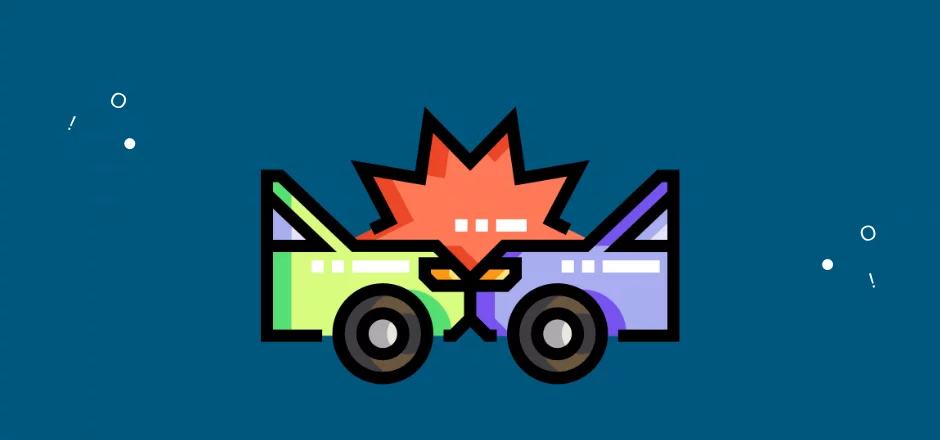Can Someone Sue You for a Car Accident If You Have Insurance?
If you handled a car accident through your insurance, you may be surprised to discover the other driver is attempting to sue for additional damages.
In this article, we will explore a common question we hear – Can someone sue you for a car accident if you have insurance?
Can Someone Sue You for a Car Accident If You Have Insurance?
Accidents happen to everyone, and often, they occur in the form of vehicle collisions. Car accidents range from minor fender benders to incidents with significant property damage or, in some cases, even a complete loss of life. While it’s safe to assume your car insurance company will protect you if you are in an accident, there are limitations to what they can do for you. This is especially true if you don’t have a high enough limit to cover all of the medical bills and damages associated with your incident.
California Car Insurance Regulations
When it comes to the amount of insurance a driver must carry, every state has its own set of regulations. While most states do honor visitor insurance plans, all residents must purchase insurance based on their own state’s guidelines.
California requirements:
- Bodily Injury Liability – minimum coverage $15,000 per person/ $30,000 per accident
- Property Damage Liability – minimum coverage $5,000
- Uninsured Motorist Bodily Injury– minimum coverage $15,000 per person / $30,000 per accident
- Uninsured Motorist Property Damage Coverage – minimum coverage $3,500
These are required and selected by law for their ability to protect you if you are involved in an accident with another person.
Higher coverage options are available. Most insurance companies recommend you carry a bodily injury limit of $100,000 per person and $300,000 per accident. Many policies will cap coverage at $300,000 per person and $500,000 per accident. To increase your coverage, you need to purchase a separate umbrella package. These options often increase in $1 million increments.
How Does Car Insurance Work in an Accident?
Let’s say you get into an accident and hit a single, older model car with just the driver inside. The impact was moderate and the driver’s neck hurts; you also dented a side panel. The driver goes to the ER to be checked out but isn’t admitted. If you have the aforementioned limits of liability, your insurance company will pay up to $15,000 for the other person’s medical bills and up to $5,000 to repair that side panel.
Sounds simple enough, right? But what happens if that accident is more significant? Let’s say you’re driving faster and the impact sends the other car spinning, crashing it into a median. The entire front end of a newer model BMW is crushed and the driver is rushed by ambulance to the nearest trauma center with significant injuries, including head trauma. You’ve totaled the other driver’s car (we’ll pretend it’s worth $75,000) and he has medical bills totaling over $250,000 for trauma care.
If your insurance will only pay $15,000 of the other person’s medical bills, there is still a balance of $235,000. That $5,000 property damage limit you chose leaves an unpaid balance of $70,000. Who is responsible for the other $305,000 in total damages once your insurance company has paid?
You are.
Ok, but what about that uninsured motorist coverage? Fair enough. Let’s say the other driver has uninsured motorist coverage at $100,000 per person for bodily injury and $50,000 per accident for property damage. After your insurance and his insurance pay, there is still a balance of $155,000. The guy you injured can sue you for the remaining $155,000 and his insurance company may have the right to sue you to recover their $150,000. Ouch.
Matters can escalate if there are multiple vehicles and people involved. Let’s say you have a passenger in your car and the other driver has 2 passengers in his car. All five people go to the hospital to be checked out. Person A has $10,000 in bills; person B has $20,000; person C has $10,000; person D has $10,000, and person E has $10,000.
Your insurance will pay the $10,000 for person A. Person B will only receive $15,000 because of the per person limit. Person C will receive only $5,000 because the first two people already took up $25,000 of your $30,000 limit per accident. Person D and person E get nothing. This is an overly simplified example, but at the end of the day, you still have $30,000 in uncovered expenses.
Can You Really Be Sued?
Yes, especially in California. Some states have no-fault insurance laws that limit a policyholder’s ability to sue you for damages beyond what insurance covers. In New Jersey, for example, the other party’s insurance would pay the bills and they can only sue you for additional damages if the case meets certain “serious” criteria.
If your accident happened in California, different rules apply. The other parties involved, including passengers and property owners, can sue you for damages above and beyond what your insurance company pays. There is a two-year statute of limitations for filing a personal injury claim and a three-year limitation for filing a property damage claim.
This can become especially tricky if the injured party suing you was seriously injured. You can be held liable for all costs related to the accident, including current and future medical expenses related to those injuries. If your accident caused a spinal injury, for example, you could end up responsible for millions of dollars in ongoing medical care and rehabilitation expenses. You may also be sued for loss of earnings and pain and suffering.
When You Need a Lawyer
One of the best things you can do to prevent a lawsuit after a car accident is to purchase the highest limit of personal injury and property damage liability you can afford. The difference in price is often negligible and the investment is certainly worth the benefit if there is a tragedy.
While your insurance company is obligated to defend you after an accident, they are only obligated to do so if you did not commit a crime (such as drunk driving) and within the limits of the policy. Once your policy limits have been exhausted, you are on your own and will need to find a private attorney to help you.
Driving around with low liability limits? Have higher limits but find yourself concerned about a serious accident you were involved with? Don’t be afraid to start calling around to get opinions from qualified auto accident attorney. They’ll work to find ways to share costs (and blame) with the other party or to minimize your damages. The sooner you seek help after an accident, the faster you can get to work.
Are you in search for a certified attorney to represent you?
Let us help you find one today!



